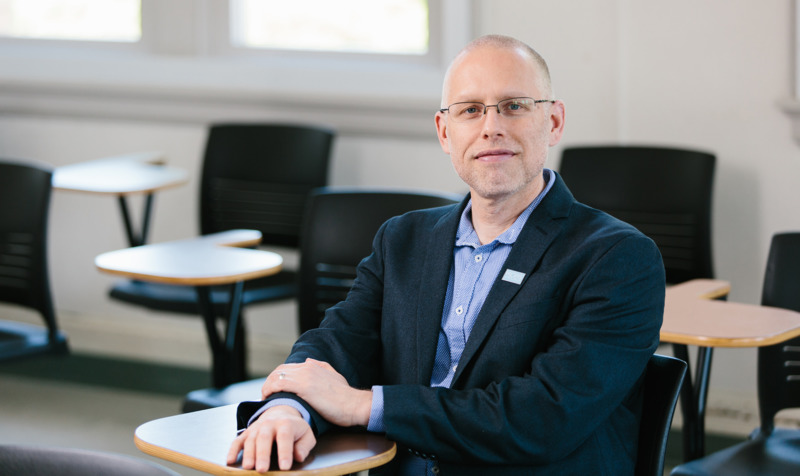Education
- Ph.D. 2007 – University of Maryland, Educational Psychology
- M.A. 2006 – University of Maryland, Measurement, Statistics and Evaluation
- M.Ed. 1998 – University of Maryland, Education, Counseling and Personnel Services
- B.A. 1995 – Carleton College, Psychology
Areas of Expertise
- Science of Learning
- Self-Regulated Learning
- Epistemic Cognition
- Digital Literacy
- Research Methods
Background
Jeff Greene studies how to help people use technology learn and thrive in the modern world. When he was young, Jeff was thrilled to get his first computer and use it to be more creative, more productive, and connect with people around the world. Today, people rarely describe their relationship with technology as “thrilling.” Instead, they lament their addiction to their phones or the struggles they have sorting the good, the bad, and the ugly on the Internet. Jeff Greene’s research focuses on making technology thrilling again, helping people make technology work for them, rather than the other way around. Specifically, his research on self-regulated learning, epistemic cognition, and digital literacy has led to over 100 peer-reviewed publications and over $8million in funding from the National Science Foundation, the Institute of Education Sciences, and the Spencer Foundation, among other sources. He is an elected Fellow of both Division 15 of the American Psychological Association and Division C of the American Educational Research Association.
Research
There is so much information available online – how do people find what they need, decide what to believe, and avoid the many distractions the Internet brings? These are the kinds of questions Greene explores in his research. Together with his students and collaborators from the School of Education, the greater UNC community, and around the world, Greene studies how to help students self-regulate their learning so that they can maximize their potential online and in the classroom. In addition, he studies how to help students be better critical consumers, users, and producers of knowledge. His work shows teaching the science of learning to students results in better, deeper thinkers who can experience greater academic and lifelong success.
